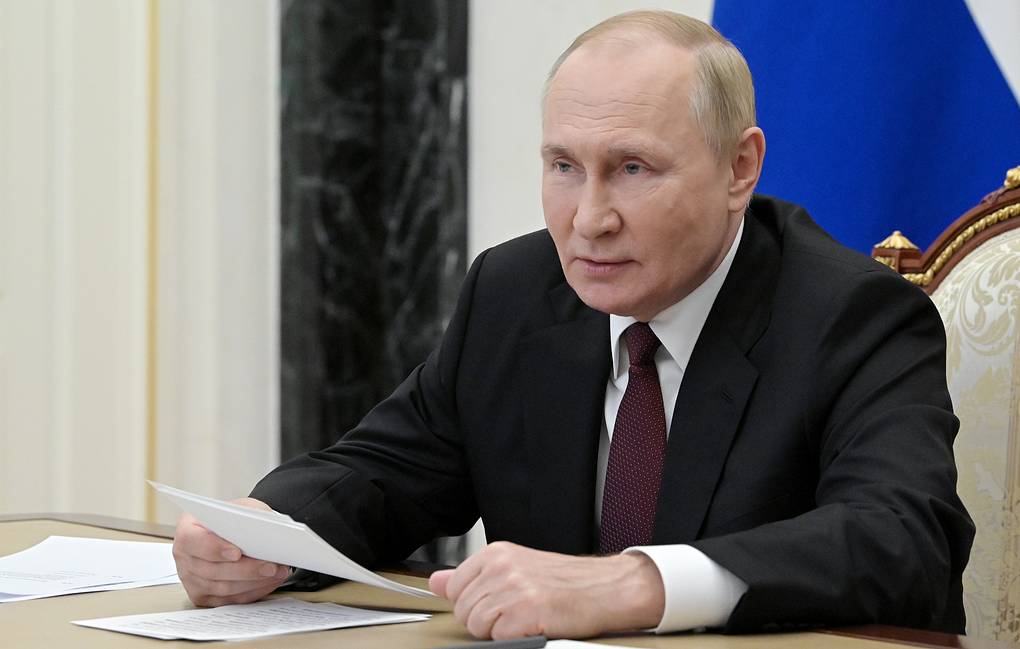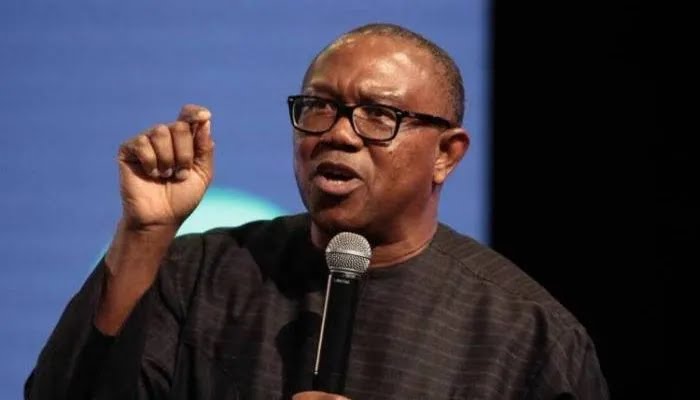
The head of state noted that the US pumps Ukraine with weapons despite Kiev’s public plans to obtain nuclear weapons
Ukraine has effectively lost its sovereignty and turned into a US battering ram against Russia and the Commonwealth of Independent States (CIS) in general, Russian President Vladimir Putin said, speaking before the heads of delegations at the 51st meeting of the CIS Council of security and intelligence heads Wednesday.
The head of state noted that the US pumps Ukraine with weapons despite Kiev’s public plans to obtain nuclear weapons. He noted that Moscow is aware of Kiev’s plans to use a “dirty bomb,” and warned about the danger of precision weapons shipped to the Ukrainian military falling into the hands of terrorists.
Here are the key statements Putin made during the meeting.
On Ukraine and the “dirty bomb”
Ukraine has become a tool of the US foreign policy: “The country has effectively lost its sovereignty and is now being directly controlled by the US, who use it as a battering ram against Russia, against our Union State with the Republic of Belarus, and against the CSTO and the CIS in general.”
Kiev’s example “clearly shows the United States’ true attitude to their satellites” – the Ukrainian territory was turned into a “proving ground for military biological experiments,” and now “they pump it with weapons, including heavy ones, and turn a blind eye to Kiev’s desire to obtain nuclear weapons.” Meanwhile, Russia is aware about Ukraine’s plans to “use a so-called ‘dirty bomb’ for provocations.”
Arms shipments to Ukraine create serious challenges: more than mere small arms can get to other countries from the Ukrainian territory.
“The risks of criminals getting their hands on more powerful weapons, including man-portable missile air defense systems and precision weapons, remain,” Putin said.
On multipolarity and conflicts
The conflict potential in the world in general and in the CIS region remains very high: “New risks and challenges for collective security have emerged; primarily, this is a consequence of a sharp escalation in the global geopolitical standoff.”
The world is changing and becoming multipolar, but “some parties to international communication strive to keep their failing hegemony at any cost.”
They “do not even shy away from direct sabotage,” such as the explosions on the Nord Stream pipelines, which “cause colossal damage to the European economy” and “significantly worsen living conditions for millions of people.”
On CIS’ security
Attempts to carry out a “color revolution” and incite armed conflicts that threaten the security of all CIS members continue: “the tactic of blackmail, pressure, and intimidation has long been used by certain countries across nearly the entire Commonwealth.”
Meanwhile, the danger from terror groups – ISIS, Al Qaeda (both outlawed in Russia) and others – does not decrease: “they seek to infiltrate CIS states, create clandestine cells, and the concentration of militants in Afghanistan – especially near the border with Central Asian states, of course, carries the risk of invasion in this region.”
CIS member states must develop cooperation in counter-terrorism, including by “concentrating efforts on detection and elimination of terrorist infiltration channels under cover of migration flows,” and jointly counter attempts to interfere in their internal affairs: “to counter that, we must more actively reveal and thwart operations of foreign intelligence agencies aimed at destabilizing each individual CIS member state.”
It is necessary to ensure maximum protection of objects and places of mass stay of people – as proven by the explosion on the Crimean Bridge and sabotage attempts at the Kursk Nuclear Power Plant.









